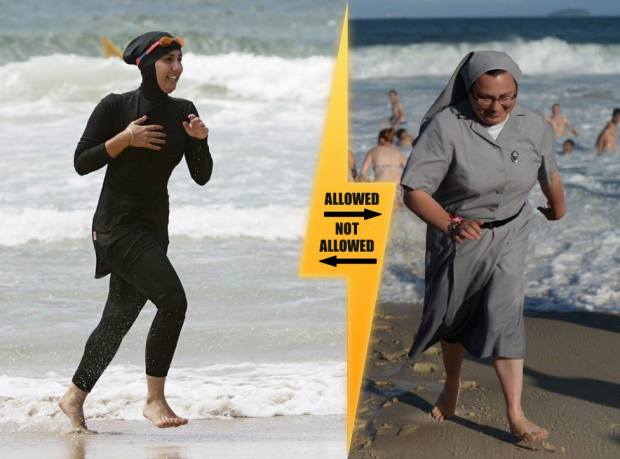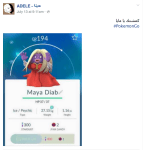When I graduated from medical school about two years ago, the most important part of the Hyppocratic Oath that we took was to “do no harm.” It’s our moral and legal obligation as doctors to do the most that we can to improve our patients’ health, while making sure that our work does not prove to be at the detriment of their health and, even worse, constitute us taking advantage of them to increase our bottom line.
Farah Kassab was a 32 year old Iraqi-Jordanian mother of two, previously healthy contrary to the rumors trying to defend the surgeon who killed her, who presented to (El Jamal) Nader (Wa) Saab’s clinic, by virtue of the ads he has inundated the country and its airline carrier with, to do a procedure that would help her lose weight. It wouldn’t have been considered an expensive plastic surgery: an injection to her stomach area that would regulate the amount of food she could eat.
Instead, Saab worked at convincing Farah Kassab that she needed to do liposuctions to her entire body in order to reach the figure she wanted, along with an eyebrow lift and a rhinoplasty. Saab took advantage of a woman who sought the care of a physician hoping he had her best interest at heart, and managed to convince her to sign on to a drastic procedure that would cost her north of $50,000 and involve more than 4-5 hours of operational work.
Later on, (El Jamal) Nader (Wa) Saab started operating on Farah. 19 injections later, the 32 year old suffered a rare complication that usually occurs when patients suffer fractures in some of their long bones, but has been shown to exist in liposuctions, especially when they’re as massive volume as hers: a fat embolism.
Essentially, fat tissue that gathers together travels through the patient’s vessels and targets multiple organs, the most dangerous of which is the lungs which could lead to death especially when the patient in question is not in an equipped hospital to deal with such things.
Of course, (El Jamal) Nader (Wa) Saab’s hospital was not equipped to deal with any of the complications that arise of his surgeries. His hospital did not have the facilities needed to monitor patients post operation to manage any arising complications. Farah was transferred back to her room. Soon enough, she became a frigid body whose mother had to frantically shout for the medical crew to come give her attention. Farah had passed away.
Instead of taking the blame, (El Jamal) Nader (Wa) Saab proceeded to do what he does best: bend the system that he’s been bending for years to his advantage. He contacted his friend who works at Notre Dame du Liban hospital and they agreed to transfer Farah to that hospital and make it look like she died there, while issuing official death certificates with that information.
His friend agreed, but their plan did not go as planned when Farah’s family found out what happened with her forcing the other hospital to admit they received the patient already dead, according to Arabic news site Ammon News.
(El Jamal) Nader (Wa) Saab has since fled to Cyprus, and his hospital has been closed down.
If there’s anything for you to wish in life, especially if you live in Lebanon, it’s for a wasta that’s as strong as consistent as the one (El Jamal) Nader (Wa) Saab has enjoyed over the years.
Facing recurrent suspensions from the Lebanese Order of Physicians because of him breaking their law that forbids physicians from advertising for themselves (Al jamal Nader wa Saab), he should have not been legally allowed to practice medicine in the country, especially on such a high level. And yet, he did.
In fact, he faced suspensions from the Lebanese Order of Physicians for the past five years, including one for 6 months, as well as a one month legal ban from pursuing what he calls “medicine.” He was still brought back to the frontline, in the full sight of the Lebanese government, without anyone addressing it, and not even with a higher level of vigilance from concerned authorities.
(El Jamal) Nader (Wa) Saab has been banned by more than one Arab country already from practicing his brand of medicine there, including the U.A.E, K.S.A and Kuwait. The reason for those bans are not perfectly clear, but even then he was still allowed to practice medicine in Lebanon with full liberty.
Farah Kassab isn’t the first victim of (El Jamal) Nader (Wa) Saab, albeit she’s the first one to have died because of his negligence. The patients we’ve seen who have presented to clinics for other reasons with massively botched operations at his hands are recurrent, and have always found deaf ears in any governmental function they pursued. Refer to the insurmountable wasta that allows him to do so. He has already harmed a Jordanian woman before as he operated on one in his hotel room in Amman. He was still allowed to practice here afterwards.
For a hospital doing such high level surgeries, the Lebanese government, especially through the Ministry of Health, should have made sure that the minimum required facilities to monitor patients post-op and to manage any arising complications that occur is there. How could they allow operations with general anesthesia to occur without high level of pre and post op monitoring?
With (El Jamal) Nader (Wa) Saab’s hospital, high profile as it is, they did not. In fact, his center getting the hospital label occurred through a governmental decree without passing through the necessary regulatory bodies, as per LBC, and without it being part of the Lebanese syndicate of hospitals which would have oversight over regulation.
Of course, his hospital is not the only lacking one in the country, but his hospital is not one that exists in the middle of nowhere and whose shortage in facilities is because our government doesn’t have the capacity to provide them. A physician such as him was allowed to operate a plastic surgery hospital without the minimum requirements to operate it in in the first place in full sight of the law.
How can a hospital based on surgical procedures not have any post-op monitoring? How is this severe lack of oversight even allowed? Or is our government only capable of banning movies? With no decent hospital, no legal basis to work here, (El Jamal) Nader (Wa) Saab still did surgeries. Why?
How many more of these horrible stories are we supposed to hear, of physicians who give all of us a bad name because they are allowed to practice by a government who doesn’t bother to check and doesn’t listen to the many victims they’ve left in their path over the years?
Today, this 32 year old mother of a four year old girl and a one year old boy exists no more not only because of (El Jamal) Nader (Wa) Saab, but because the Lebanese government in this jungle they call a country has allowed such a creature to not only exist, but to thrive.






























